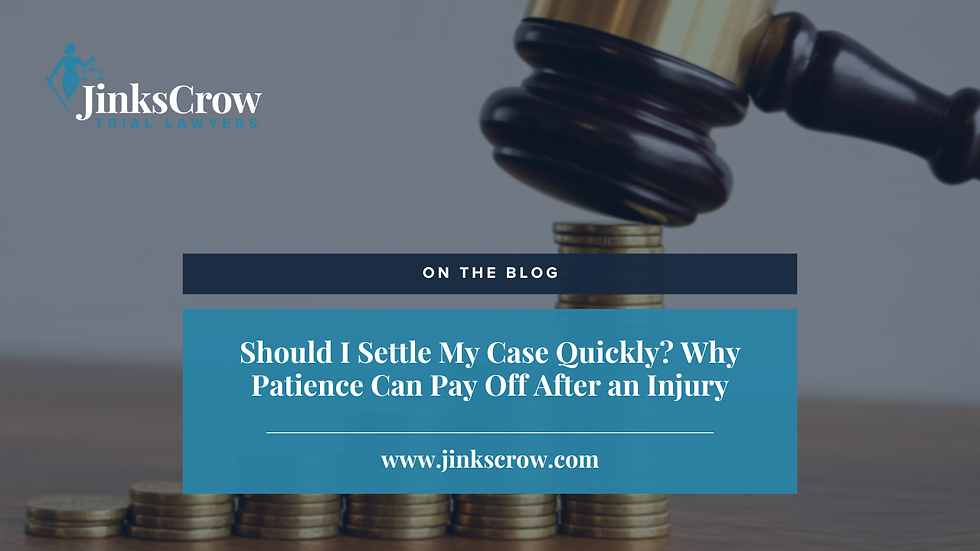Alabama Guest Statute
- Jinks Crow

- Mar 30, 2017
- 2 min read
Under Alabama law, an individual who operates a vehicle is not liable for injuries or damages sustained by a non-paying passenger within the vehicle unless the injured passenger can show that his or her damage resulted from willful or wanton conduct on the part of the driver. Alabama Code Section 32-1-2. Although this law can be beneficial for some drivers, it can leave injured passengers without any recourse for recouping losses received due to the negligent actions of drivers. For this reason, most states have abandoned these types of “guest” or “passenger” statutes.
The Alabama Guest Statute was passed in 1935. The law provides that the guest must be transported without payment in order for the statute to apply.
Therefore, if the evidence shows that the driver received any payment or other benefit (such as an Uber, cab, or bus driver would), then the driver would not be shielded from liability under the Guest Statute. Additionally, if the injured passenger can show that the driver’s improper conduct was willful or wanton, the Guest Statute does not bar recovery. Generally, “willful or wanton” is improper conduct that is greater than “mere negligence”. Examples include drinking and driving, excessive speeding, and other types of reckless driving.
%20Proof%20%235.png)








Comments